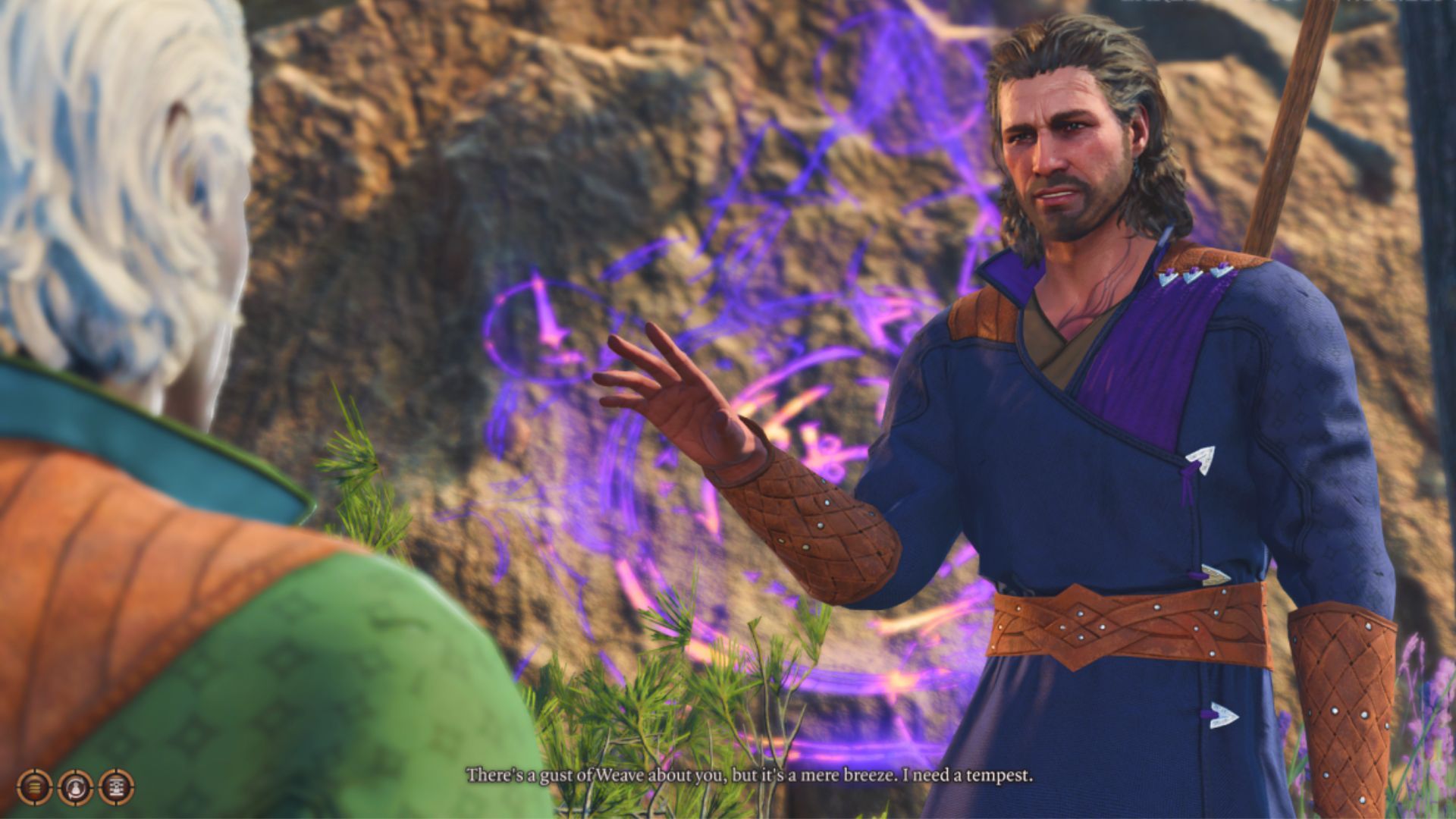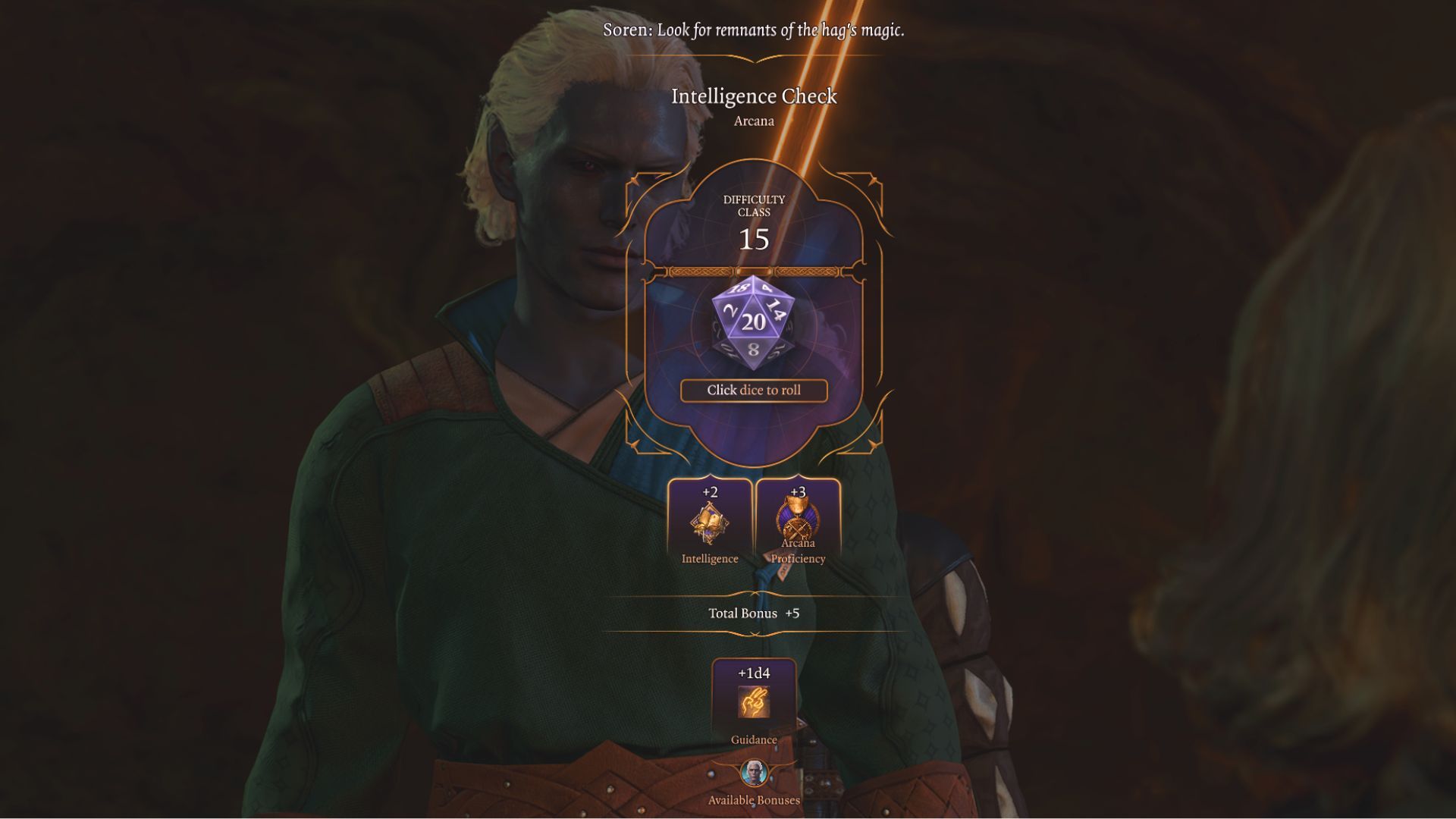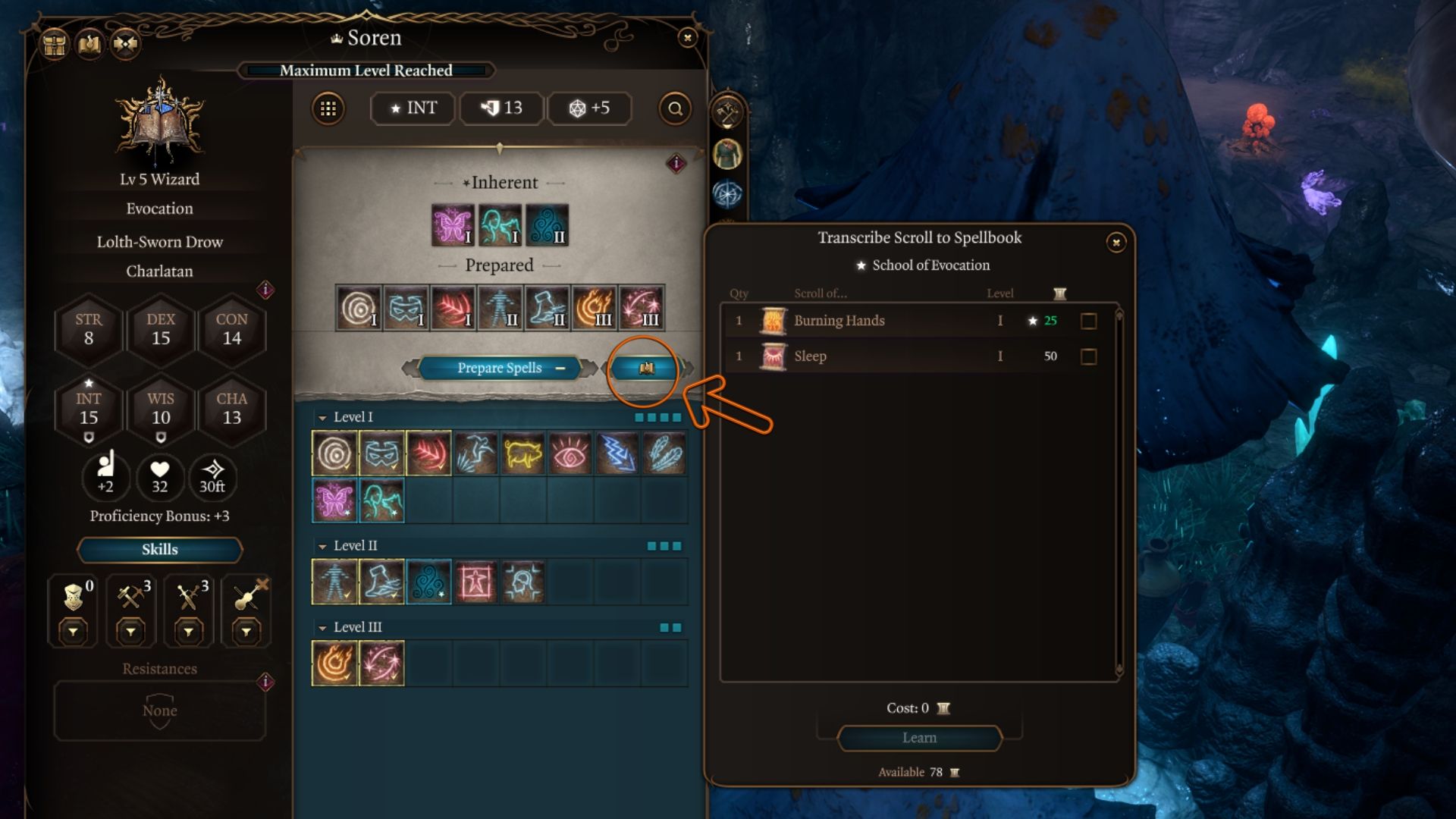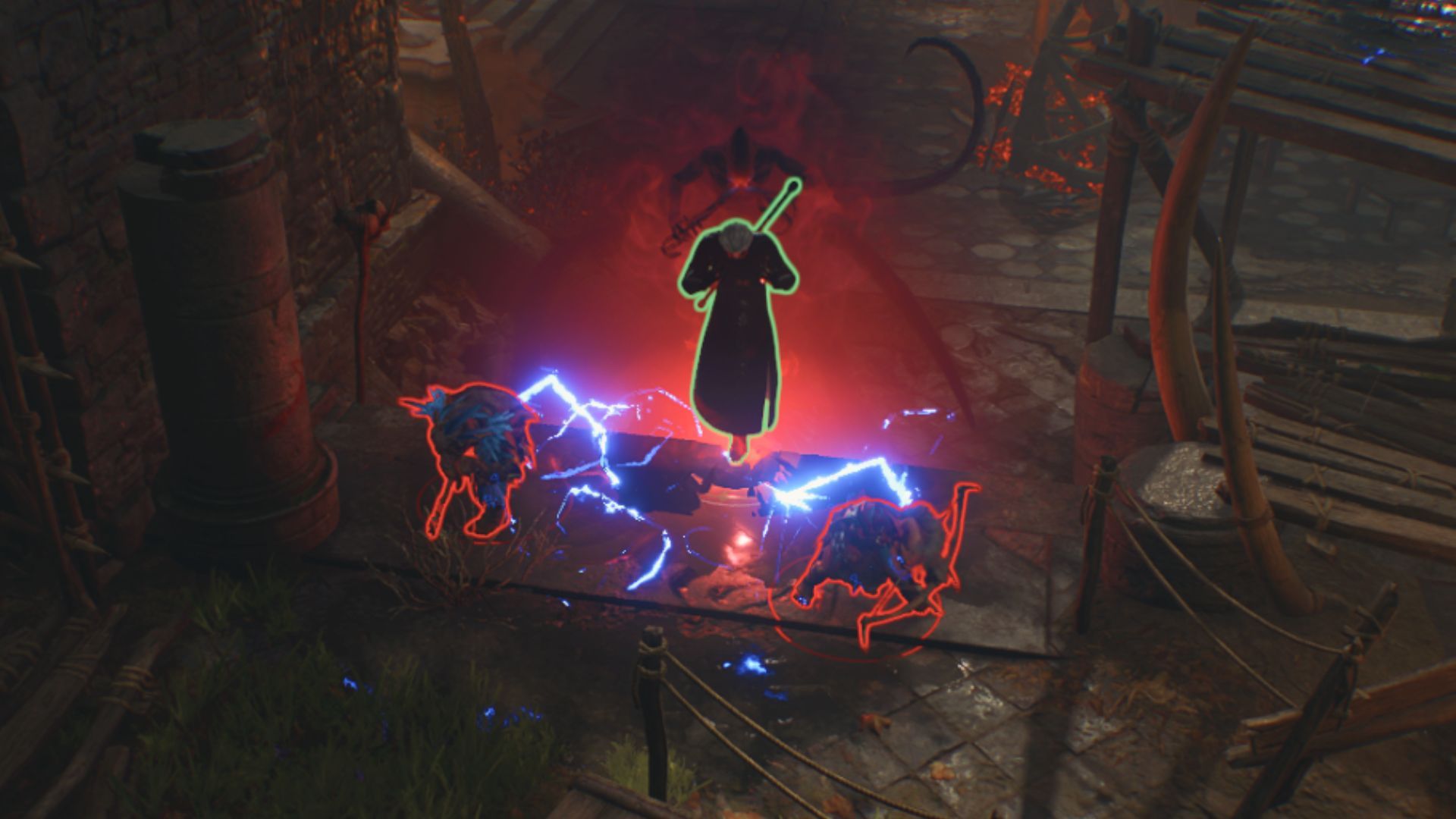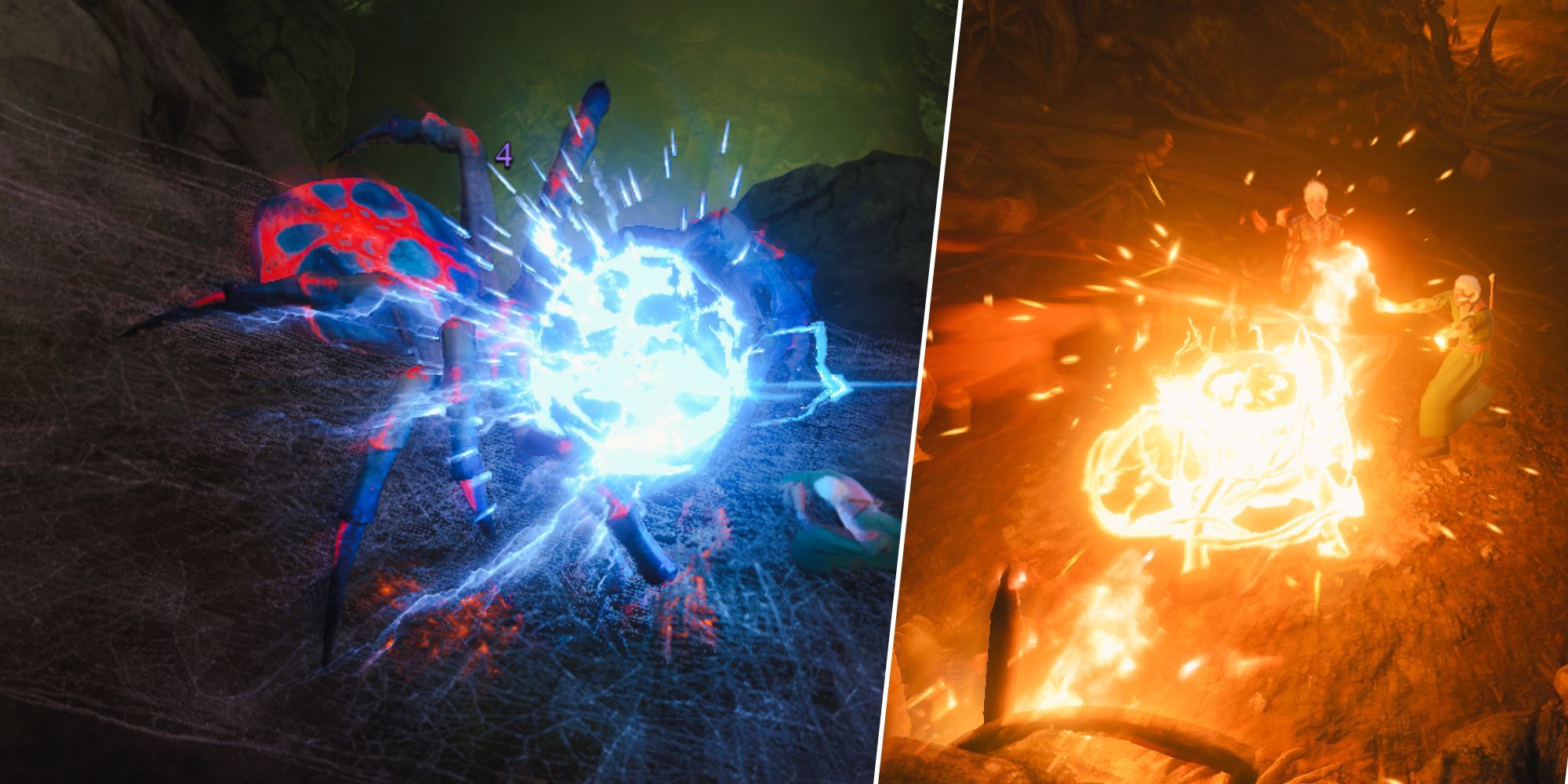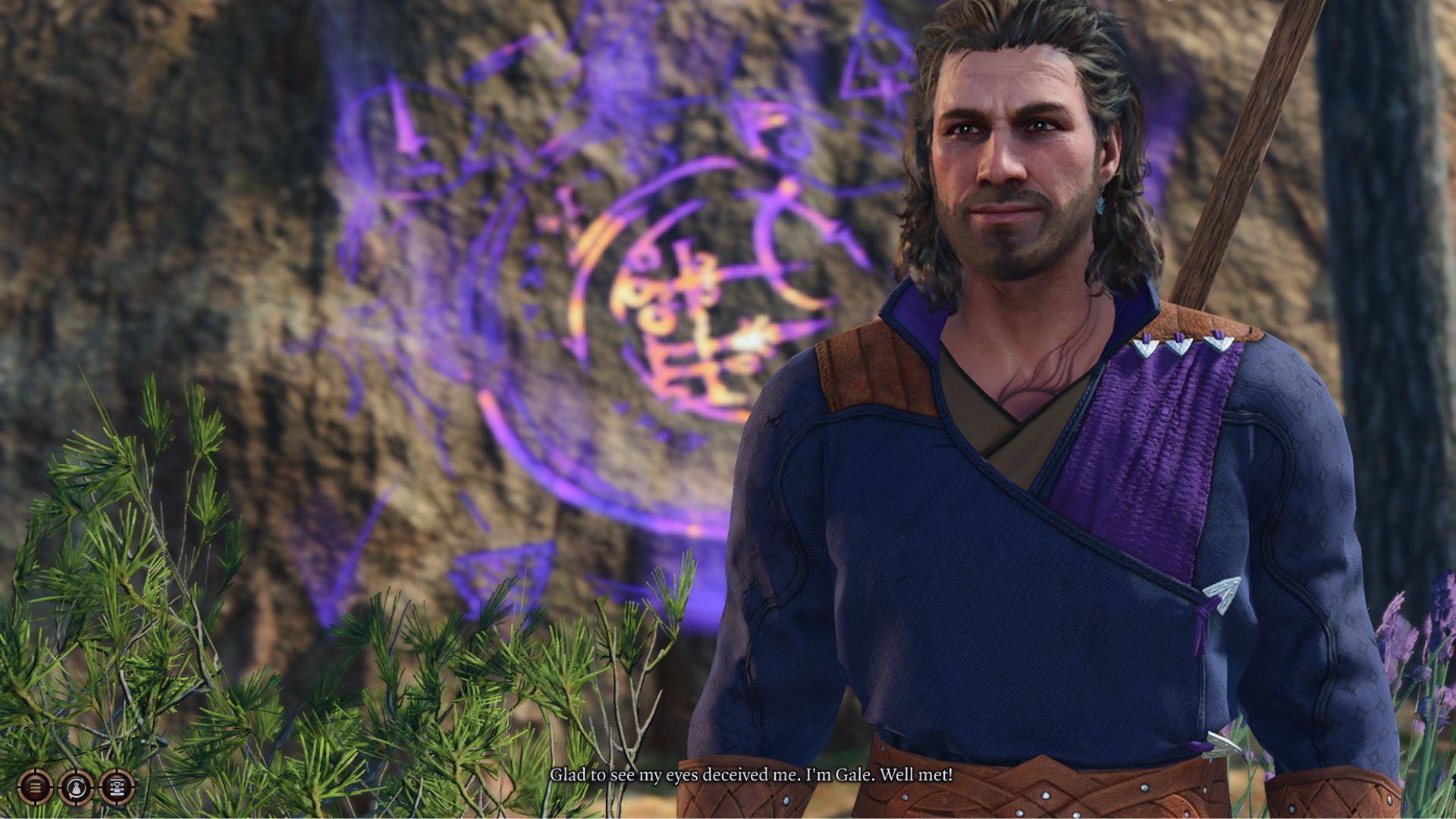Quick Links
To master the Weave is to control the fabric of the world itself, and no class does it better than the Wizard in Baldur's Gate 3. Armed with an ever-expanding arsenal of spells, Wizards are masters of versatility—capable of engulfing their enemies in searing lightning, controlling the battlefield by ensnaring foes in sticky webs, and summoning creatures to carry out their every command.
Mastering the vast spellbook and complexities of the Wizard's gameplay might feel daunting at first, but those who dedicate themselves to mastering this spellcasting class will find themselves wielding unparalleled power with some of the best spells of the game at their disposal.
Baldur's Gate 3 is currently in early access, and only Act 1 of the story is available. As the game continues to develop, this guide will be updated to provide you with the latest information.
Wizards: An Overview
Wizards master the arcane by specializing in individual schools of magic, combining ancient spells with modern research.
The Wizard is an incredibly potent striker and blaster class, capable of doing immense single-target or AOE damage—though they can easily be built as a controller of the battlefield.
That said, they can also offer support to the party through abjuration spells, or function as the party's face through enchantment and illusion. Yup, that's almost the entire spectrum of roles. They're just that versatile.
Wizard Level | Proficiency Bonus | Cantrips Known | Spells Known | Spells Prepared | Spell Slots per Spell Level | Features | ||
|---|---|---|---|---|---|---|---|---|
1st | 2nd | 3rd | ||||||
1 | +2 | 3 | 6 | 1 + INT Mod | 2 | - | - |
|
2 | +2 | 3 | 8 | 2 + INT Mod | 3 | - | - | - |
3 | +2 | 3 | 10 | 3 + INT Mod | 4 | 2 | - |
|
4 | +2 | 4 | 12 | 4 + INT Mod | 4 | 3 | - |
|
5 | +3 | 4 | 14 | 5 + INT Mod | 4 | 3 | 2 | - |
When they're not dispensing destruction against your foes in combat, the Wizard's massive spell list, innately large number of spells known, and unique ability to learn from Spell Scrolls also let them provide tons of utility to the party out of battle, in the form of mobility, illusions and hazard-mitigation.
The School of Magic (subclass) that you choose for your Wizard will greatly impact how their spells work and can change their whole playstyle!
Make sure to read them all carefully before you choose.
Of course, dedicating your whole life to studying the arcane tends to mean a lot of skipped leg days. The Wizard class is known for being notoriously frail. They share the game's smallest hit dice (d6) with Sorcerers, and have only a small handful of features to provide them with survivability or tankiness.
Wizards also have very little in the way of armor, tool and weapon proficiencies. This means that the safest place for a Wizard to be is in the backline, being protected from goblin arrows and gnoll teeth while they obliterate foes from afar.
Starting Out As A Wizard
Ability Scores
Intelligence | The Wizard's most important ability score, by far, is Intelligence. It's your Spellcasting Ability—meaning that your Spell Attack Rolls and Saving Throw DCs, and Prepared Spells all scale with Intelligence. |
|---|---|
Constitution | And though you already know that you'll be squishy, it's still vital that you don't dump Constitution out the window. Constitution will not only affect your maximum hit points, but also your Concentration Saves to maintain long-term spells, as well as Saving Throws against battlefield effects like poison. After all, while you shouldn't be getting hit, you can't always depend on your Paladin or Barbarian to draw the enemies' ire long enough for you to get a spell off. |
Dexterity | Dexterity is also important to have as a Wizard, since it affects your AC. Dexterity Saving Throws are also some of the more common ones seen on the field. |
Strength, Wisdom & Charisma | Though Strength, Wisdom, and Charisma have less influence on mechanical benefits, they still impact skill checks and carrying capacity, making them worth considering, depending on the type of character you are trying to build. |
Skills Proficiencies
Wizards start out with the standard two skill proficiencies, available in skills related to knowledge and magic.
Saving Throw Proficiencies | Intelligence and Wisdom |
|---|---|
Skill Proficiencies | Choose 2 from the following: Arcana, History, Insight, Investigation, Medicine or Religion |
Equipment Proficiencies | Dagger, Quarterstaff, Light Crossbow |
Hit Dice | 1d6 |
Starting Equipment | Simple Robe (10 AC + DEX Modifier), Simple Boots, 1x Quarterstaff, 2x Potion of Healing, 1x Scroll of Revivify, 1x Supply Pack |
Spellcasting
Spells Known | Spells Prepared | Spellcasting Ability |
|---|---|---|
Limited (+Spell Scrolls) | Limited | Intelligence |
Wizards are technically Prepared Casters—meaning that they do not have access to cast from their entire list of spells at all times. They must choose a limited number of Prepared Spells, from their Known Spells list.
You can switch out your Prepared Spells by going to your Spellbook (Default PC Hotkey: K), clicking on Prepare Spells, and selecting the spells that you want to prepare.
However, Wizards differ from other Prepared Casters in that they do not have access to prepare every spell on their Class Spell List, but instead have a Spells Known list.
Though this limitation may seem stifling, it is easily offset by the Wizard's incredibly large class Spell List, though, as well as their ability to copy spells.
Copying Spells
Though not detailed in the Character Creation screen, Wizards have a unique and remarkable ability to expand on their Spells Known list by copying any spells from Spell Scrolls that they find during their journey.
To do so, go to your Spellbook (Default PC Hotkey: K) and click on the Spellbook icon, which will give you a list of scrolls you can transcribe to your spellbook.
Copying spells costs 50GP per spell level. Transcribing spells from your own School of Magic (your chosen subclass) costs half as much.
Class Features
In this section, we'll go over each Wizard class feature, what they mean, and how to effectively use them.
The Wizard's base class features may appear modest in comparison to other classes, but don't worry! The real magic lies in their vast array of Subclass features, as the diverse Wizard Schools of Magic greatly shape your spellcasting and playstyle.
Arcane Recovery (Level 1)
Arcane Recovery | ||
|---|---|---|
Casting Time: 1 Action | Range: Self | Replenishes On: Long Rest |
Once per day out of combat, replenish expended spell slots, which allow you to cast Spells. | ||
Arcane Recovery is one of the very few base class features (non-subclass) that Wizards get, and it's easy to see why. With the vast array of spells that you get even in the earlier levels, it can be easy to accidentally forget that you have a limited number of spell slots to cast with.
This feature gives you an excellent boost of sustainability, letting you recover all your spell slots once per day so that you find yourself starting and ending the day's travels after a single tough fight.
Subclass Savant (Level 2)
Savant | ||
|---|---|---|
|
The standard first subclass feature of all Wizards, the Savant feature is a straightforward feature that halves the cost of copying spells that align with your School of Magic.
Though simple, this is a solid boon—especially as gold can go rather fast in the early game when you're pressed for equipment and items.
Because of this feature, it is ironically more cost-efficient not to choose spells from your chosen subclass when you level up, since it will be cheaper to copy them from a Spell Scroll—if you can find one with the spell you want.
Other Features
The following section contains spoilers for the story of Baldur's Gate 3After activating your Illithid Wisdom Checks enough times and recovering from its physical toll, you'll wake up to find that you've gained the Illithid Power Class Action of your corresponding class.
Reflective Shell | |||
|---|---|---|---|
Casting Time: 1 Action | Range/Area: Self | Duration: 2 Turns | Replenishes On: Short Rest |
| |||
While not as flashy as some of the other classes' Illithid Powers, one of the Wizard's biggest weaknesses is vulnerability to attacks that can reach beyond the frontline—and this solves exactly that.
Use Reflective Shell against powerful casters or archers, and watch them succumb to their own spells and arrows.
Schools Of Magic (Subclass Overview)
As you reach your second level in Wizard, it's time for you to choose exactly what sort of magic you'd like to specialize in.
Though the spell lists for all Wizards stay more-or-less the same, each School of Magic grants Wizards distinctive features that complement the roles that they'll be taking on both in and out of combat.
Each School of Magic corresponds to a School of Magic—the classification system for spells, some items, and magic types.
School of Magic | Overview | Combat Role | Other Focuses |
|---|---|---|---|
Abjuration |
| Support, Defender | Protection, Mitigation |
Evocation |
| Striker, Blaster | Elemental Damage |
Conjuration* |
| Controller, Defender | Utility, Summons, Mobility |
Divination* |
| Controller | Utility, Knowledge |
Enchantment* |
| Controller | Utility, Face (Social Situations) |
Necromancy* |
| Striker, Defender | Summons, Healing (Self) |
Illusion* |
| Controller | Utility, Face (Social Situations) |
Transmutation* |
| Controller | Utility |
School Of Abjuration (Subclass)
Abjuration spells summon wards, banish enemies, and nullify magic, suitable for those who wish to defend themselves and others.
If you find yourself drawn to protective magic that summons powerful wards, banishes foes, and nullifies the effects of enemy spells, then Abjuration is the School of Magic for you.
As an Abjurer, your primary focus is on safeguarding yourself and your allies from harm, making you an invaluable support and defender in any adventuring party. Throughout your journey, as you master the art of protection, your magic will become an impenetrable bastion against those who seek to harm you and your companions.
Arcane Ward (Level 2, School Of Abjuration)
Arcane Ward | ||
|---|---|---|
|
Whew, that's a complicated description! Basically, each time you cast an Abjuration spell, you gain a magical shield that lasts until your next long rest.
This shield can only ever go up to 3 HP and absorbs all damage directed at you. If the shield's HP reaches zero, you'll start taking damage again.
Each time you cast an Abjuration spell afterward, the shield will be restored by an amount dependent on how powerful the spell was.
Since you'll likely be casting plenty of Abjuration spells, this is a great source of sustainability and free shielding—yes, you shouldn't be taking hefty amounts of damage as a Wizard regardless, but you never know when things might slip through the cracks of your frontline.
School Of Evocation (Subclass)
Evocation spells focus elemental energy into powerful attacks and enchantments. Those who specialize in this school are known as Evokers.
The School of Evocation is a formidable domain where practitioners dedicate themselves to mastering the destructive forces of the elements, wielding the very essence of fire, lightning, ice, and other primal forces.
Evocation spells lay waste to foes in a blaze of elemental fury, making Evokers fearsome ranged damage dealers.
Whether you seek to embrace the path of a blazing pyromancer or a tempestuous wielder of lightning, the School of Evocation beckons those who dare to command the untamed forces of nature itself.
Sculpt Spells (Level 2, School Of Evocation)
Sculpt Spells | ||
|---|---|---|
|
When your arcane tradition is focused entirely on being as destructive as possible, unintentional friendly fire tends to be inevitable.
This spell completely solves that problem, ensuring that your trusty Barbarian and Fighter allies can keep tearing into your foes without being incinerated by a misplaced Fireball.
Wizard Companions
As of Early Access, Baldur's Gate 3 features one Wizard companion: Gale, the Wizard of Waterdeep.
An ambitious wizard seeking to win back divine favor that he once lost, Gale is a kind-hearted—albeit occasionally pretentious—Wizard whom you can meet early on in the game, shortly after the Nautiloid crash.
You can find him by interacting with the Roadside Cliffs waypoint (X:222, Y:327), after which Gale will appear and speak to you. You'll be able to ask him to join you on your travels after this conversation.


